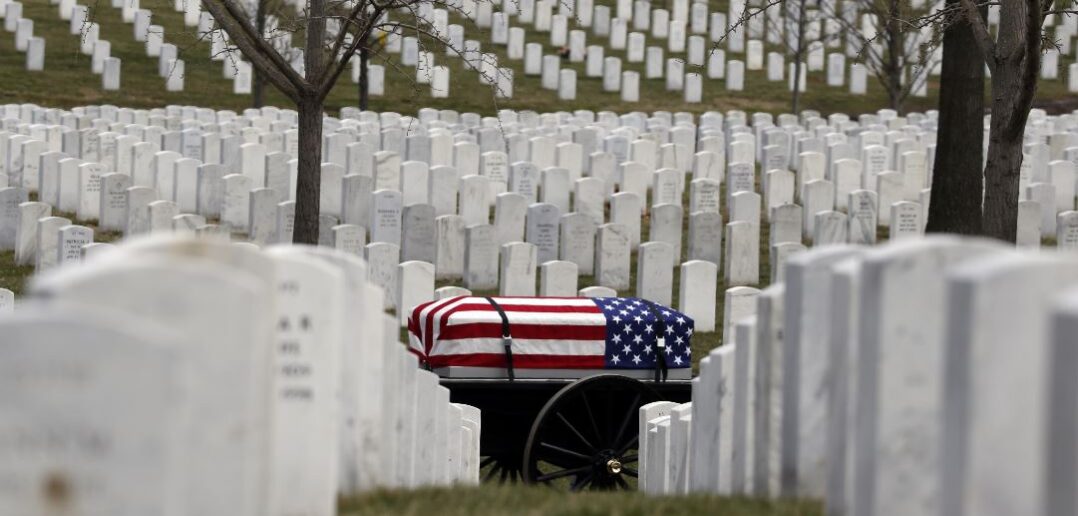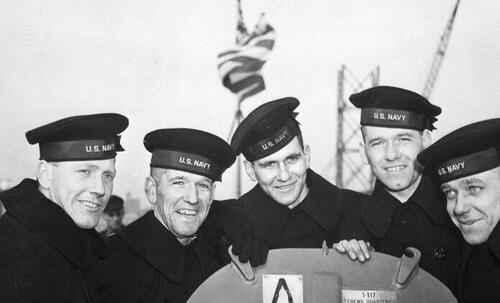Authored by Brooke Rollins via RealClearPolitics.com,
The Christmas season of 1942 was clouded by war in the small town of Waterloo, Iowa, but for Mrs. Alleta Sullivan, it was especially dreadful. A rumor was going about town, and it was about her sons. Or rather, it was about all five sons, each of whom had volunteered for the Navy — and elected to serve together aboard the same ship. The brothers meant to fight as they lived, as a team, as a family, each helping the other out — on the vast and distant Pacific as much as in idyllic Iowa.
The rumor that reached their mother was that their ship, the light cruiser Juneau, had sunk off Guadalcanal. But Mrs. Alleta Sullivan had received no news.
So, she did something very American. She wrote to the Navy. “Dear Sirs,” she began, “I am writing you in regards to a rumor going around that my five sons were killed in action in November. A mother from here came and told me she got a letter from her son and he heard my five sons were killed.”
The next line, even softened by 80 years, still breaks the heart in its simplicity and directness: “It is all over town now, and I am so worried.”
Mrs. Sullivan would have been entirely justified in demanding news of her boys. She would have been justified in demanding that the Navy account for them, that she did not have to endure the quiet hell of rumors of her sons. Instead, she does something remarkable, and reading it now is a window into a different — and better — America. She writes that even if her five sons are gone, she will still do her own duty.
“[P]lease let me know the truth. I am to christen the U.S.S. TAWASA, Feb. 12th, at Portland, Oregon. If anything has happened to my five sons, I will still christen the ship as it was their wish that I do so.”
Stop there for a moment and re-read that. Even in the shadow of the most terrible prospect a mother can face, Mrs. Alleta Sullivan tells the Navy it can count on her to keep her commitments. She would never have said it, but here you can see from whom her five sons inherited their own sense of sacrificial devotion.
“I hated to bother you,” she continued as if she had anything at all to apologize for, “but it has worried me so that I wanted to know if it was true. So please tell me. It was hard to give five sons all at once to the Navy, but I am proud of my boys that they can serve and help protect their country.”
Mrs. Sullivan did not have to wait long for her answer. Her letter went to the Navy and crossed paths with the inbound casualty notification. Her letter went out in early January 1943. On the early morning of January 11, three Navy officers arrived at the little house on 98 Adams St. in Waterloo. Mr. and Mrs. Sullivan knew why they had come. The officer in charge knew he could not soften the blow.
“I’m sorry,” he said, “All five.”
The story of the Fighting Sullivans is a famous one, notable for its contrast of great virtue — five brothers, on fire with duty imparted by their parents — and great tragedy, in their death together on a black day off the Solomon Islands. We have an obligation to remember. We should also remember that it is not the only tale of its kind. We today are as far from World War II as it was from the Civil War. In that war, there was the heartbreaking episode of Mrs. Bixby and her five sons, all fallen in battle, of whom President Lincoln wrote that they were “so costly a sacrifice upon the altar of Freedom.” In his 2013 “The Guns at Last Light,” Rick Atkinson tells a lesser-known tale of an elderly widower in Missouri, one Henry A. Wright, who waits at his small-town train station for the casket bearing his son, killed on Christmas Eve 1944 in the Ardennes.
He also received the remains of another son, who died in a German prison camp. He also received the remains of still another son, who died in combat in Germany, 10 days before war’s end.
Atkinson writes that the three brothers were buried “side by side by side beneath an iron sky.”
Continue Reading: zerohedge.com







Leave a Reply